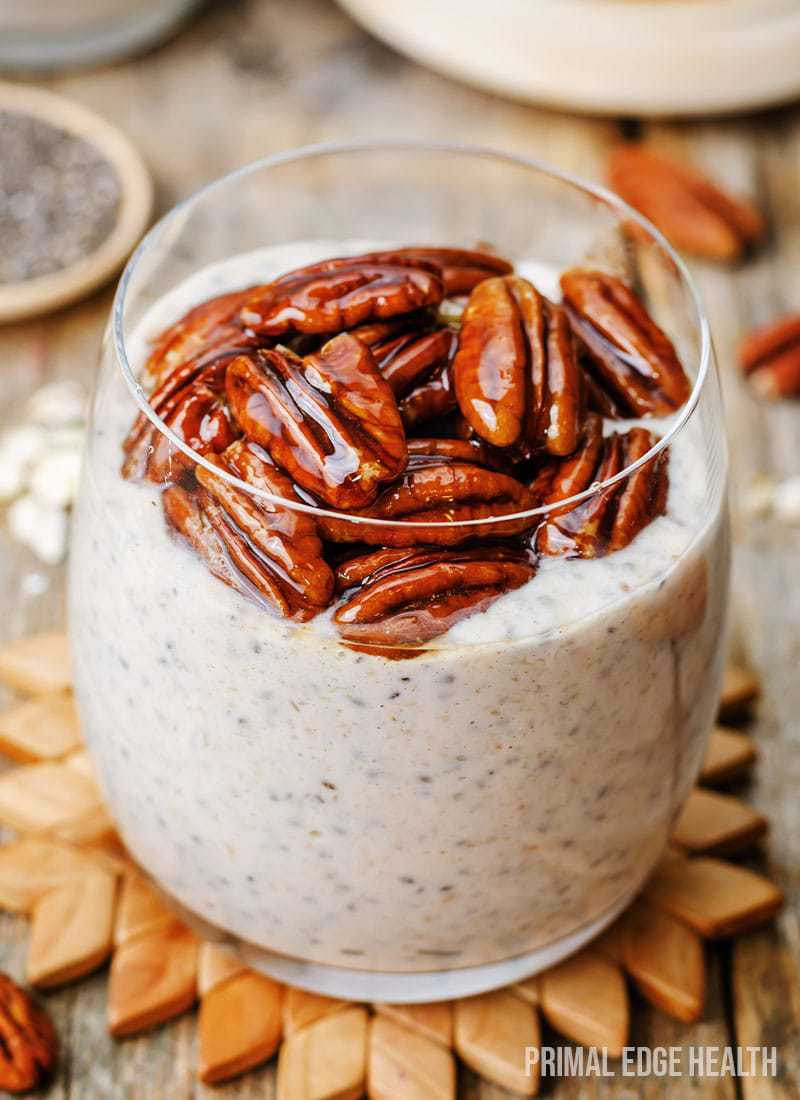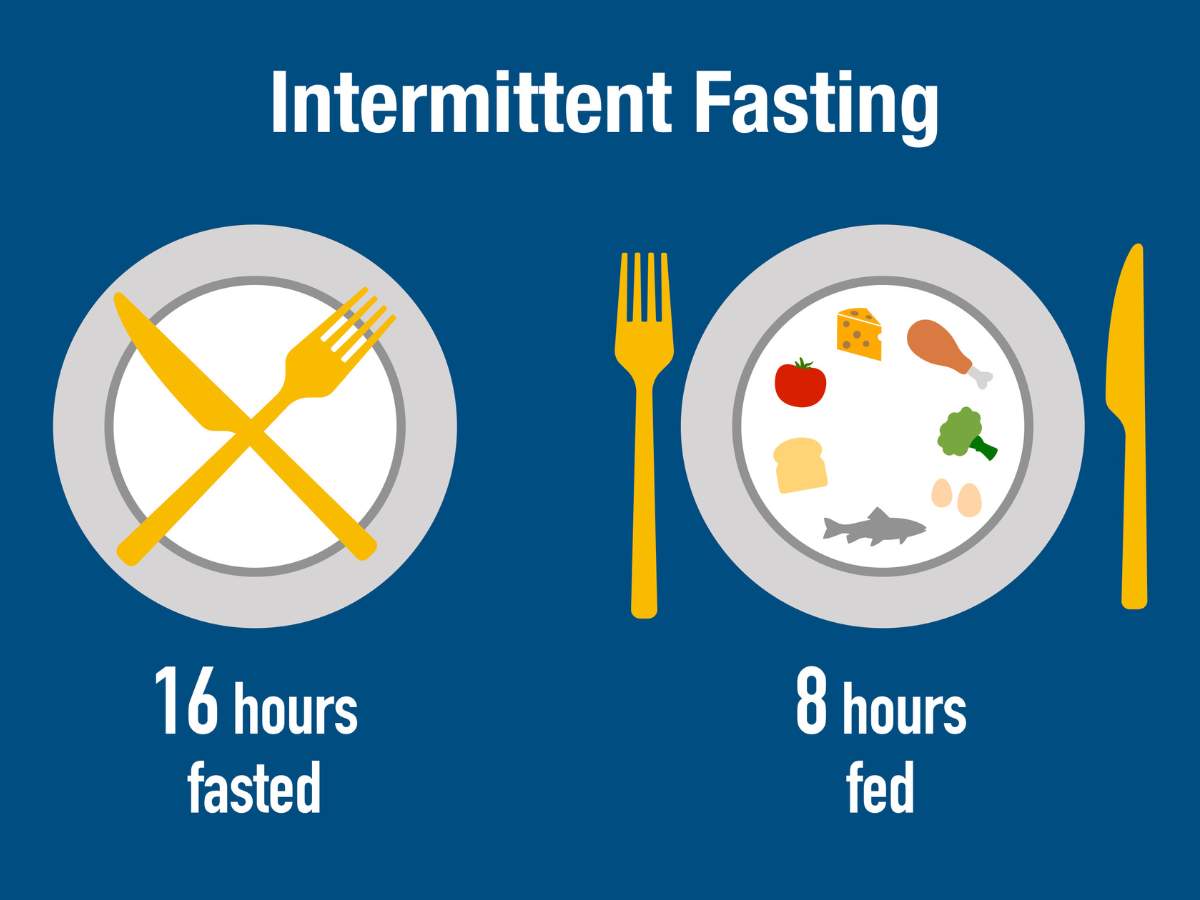Can Oatmeal Cause Gas? Here’s Why You Feel Bloating
Primal Edge Health participates in the Amazon Services LLC Associates Program and other affiliate programs and therefore, may collect a share of sales or other compensation from the links on this page. This comes at no additional cost to you, and all the prices and availability are accurate at the time of publishing.
If you’ve ever experienced discomfort after enjoying a bowl of oatmeal, you might wonder, “Can oatmeal cause gas?” Unfortunately, the short answer is yes, but it’s complicated.

In this post, I’ll uncover the potential reasons why oatmeal can cause gas and explore some strategies to help minimize this effect. So, let’s uncover the mysteries surrounding oatmeal and its impact on our digestive system.
Table of Contents (click to view)
Reasons Why You Feel Gassy After Eating Oatmeal
You sit down with a delicious bowl of oatmeal for breakfast, then get bloated and gassy not even a few hours later. If this scene sounds familiar, you might be asking “Can oatmeal cause gas?”
Some foods naturally cause a lot of gas and bloating, such as beans, dairy, and, unfortunately, oatmeal. This might not be a problem for some, but if oatmeal is a consistent part of your diet and you would rather not have to deal with the smelly consequences, you came to the right place. Let’s discover why oatmeal is causing bloating and gassiness, and what you can do to prevent it.
Possible Reasons Why Oatmeal is Making You Bloated and Gassy
Oatmeal is a fiber-rich food with a lot of potential health benefits, such as lowering blood sugar levels, decreasing the risk of heart disease, and supplementing your weight loss strategies. Plus, oatmeal is a low-oxalate food that won’t increase your risk of calcium oxalate kidney stones, which makes it a great source of carbs and fiber for people on the low-oxalate diet.
However, oatmeal can cause a lot of flatulence, bloating, and sometimes even abdominal pain in some people. If you’re one of them, here are the possible reasons why.

You Have Food Sensitivity to Oatmeal
Individuals with a sensitive digestive system may be more prone to experiencing gas after consuming oatmeal. For example, those who have irritable bowel syndrome (IBS) or other gastrointestinal issues might find that oatmeal causes discomfort, including excessive gas. Additionally, people who are not used to consuming high-fiber foods like oatmeal may experience temporary gas until their bodies adjust to the dietary change.
Digestive issues can also be an effect of lectins, which are proteins that bind to carbohydrates and may prevent proper digestion of food. Luckily, removing lectins from oats can be as easy as boiling them.
Oatmeal Might Be Contaminated with Gluten
Oats are gluten-free. However, they might be unintentionally contaminated with gluten-containing grains. During harvesting, transportation, and storage, oats sometimes get accidentally mixed with barley, wheat, and/or rye. When this happens, cross-contamination may occur.
Oats contaminated with gluten may be the culprit of your gas issues if you have gluten intolerance. The same goes for people with a wheat allergy when oats come in contact with wheat.
Oatmeal is High in Fiber
Oatmeal is a high-fiber food, with 100 grams containing about 10 grams of fiber and a combination of soluble and insoluble fiber. Soluble fiber dissolves in water and is fermented by bacteria, while insoluble fiber acts as a bulking agent and remains unfermented. Fiber can help support regular bowel movements.
However, the soluble fiber in oatmeal is not always fully broken down during digestion. This can lead to the production of gas as it passes through the digestive tract.
Gas is formed when gut bacteria in the large intestine ferment undigested carbohydrates from oatmeal. This fermentation process produces gases such as hydrogen, carbon dioxide, and methane, which can lead to bloating and flatulence.
You Have Sensitivity to the Ingredients You Added
Oatmeal might not be the culprit for the discomfort you feel after finishing a bowl. Sometimes, it could be the ingredients you add to your oatmeal. For one, adding dairy products like milk or yogurt can cause gassiness (and even diarrhea), especially if you have lactose intolerance.
To identify the culprit, try to eat your oatmeal without added ingredients. This way, you can tell if it’s the oatmeal or the toppings that are causing you discomfort.
You Eat Too Fast
The way you eat may also make you feel gassy or bloated. If you eat too fast, you’re increasing the amount of air you swallow, which may lead to more gas buildup in your gastrointestinal tract.

Ways to Avoid Gassiness and Bloating
If you love oatmeal but it’s making you bloated and gassy, there are some ways you can keep discomfort at bay. Here are some of the ways you can prevent gassiness and bloating as you enjoy a bowl of oatmeal and its high fiber content.
Soak and Ferment Oatmeal Before Cooking
Soaking and fermenting your oatmeal before cooking helps make the oats softer, easier to digest, and better for nutrient absorption. Here’s what you need for this method:
- 1 cup rolled oats
- 1 cup filtered water
- 2 tablespoons acidic medium (it could be yogurt, lemon juice, apple cider vinegar, or buttermilk)
- ½ teaspoon unrefined sea salt
Here’s how you can do it:
- Mix 1 cup of oats, water, and your preferred acidic medium into a glass bowl and stir well.
- Cover the bowl and let it sit overnight or at least for 7 to 8 hours.
- When it’s ready to cook, add 1 cup of filtered water and ½ teaspoon unrefined sea salt and stir.
- Put the mixture on a low simmer and let it cook for five minutes.
- Serve and enjoy.
Try a Gluten-Free Diet
If you’re sensitive to gluten or have celiac disease, ensure that your oatmeal is free of gluten. Look for a special seal or certification on food labels that indicates that it hasn’t been contaminated with gluten during the farming, transportation, and storing process.
Add Digestive-Enhancing Ingredients
Digestive spices like ginger or fennel seeds to oatmeal can aid digestion and minimize gas. Ginger is known for its ability to soothe the stomach and reduce gas, while fennel seeds are often used as a natural remedy for flatulence and bloating.
These spices not only enhance the flavor of your oatmeal but also work wonders in calming your stomach and reducing any discomfort caused by gas. They promote good gut health and help prevent excess gas production during the breakdown of food in your gastrointestinal tract.
You can also add probiotic sources to your oatmeal to make it more gut-friendly, such as yogurt and kefir. One of the best benefits of probiotics is better gut health, thanks to the beneficial bacteria.
Eat in Moderation
Make sure to eat a little slower. Take your time and enjoy every bite of your meal. Plus, significant discomfort might be a sign you shouldn’t eat too much oatmeal.
You can also try eating a smaller portion at first. As you increase your portions, you can determine how much you can eat without experiencing the unwanted symptoms.
Consult With a Doctor or Registered Dietitian
Is oatmeal the only food causing your digestive issues? Or are you experiencing the same problems with other foods like brussel sprouts, broccoli, and lentils? In the case of the latter, I recommend seeing a healthcare provider or registered dietitian to see if you have an underlying medical condition causing intestinal gas and digestive discomfort.

Replace Your Oatmeal with Other Breakfast Options
If you’re dealing with digestive issues related to oat consumption, experiment with different types of oats to find one that suits you best. For instance, if you experience significant bloating after consuming raw oats, you may find relief by switching to rolled or instant oats instead.
This personalized approach allows you to identify the specific oat variety that aligns with their unique digestive needs. If it doesn’t work, then, you may want to try out other breakfast options.
Forget Oatmeal: 8 Comforting Breakfast that WOW
Move over, oatmeal! I’m rounding up my best breakfast options that are comforting and super satisfying. These recipes will fill you up without weighing you down, making them the ultimate morning win. Plus, each dish is so delicious you’ll forget you’re eating not eating oatmeal. Trust us, these breakfasts are a game-changer.








Conclusion
If you’re wondering, “Can oatmeal cause gas?” the short answer is yes, but, sometimes, it’s not the sole culprit. Despite the nutritional benefits of oatmeal, it might be better to try looking for another type of oats or switching to other fiber-rich foods instead.
Check out alternative breakfast options on our blog for delicious, healthy foods that may be better for your digestive system and overall health. Remember, oatmeal is great, but it’s not the only option for fiber.








I generally keep my carbs low and eat an animal-based diet, but for me a bowl of oatmeal for breakfast has a lot of nostalgic appeal because it’s what we always had on Sunday mornings growing up. I don’t have memories of post-oatmeal gas as a kid, but I definitely suffer from it as an adult. Next time I decide to have oatmeal for breakfast I’ll give soaking a try!
Nostalgia is a great word for oatmeal – and yes, soaking helps in many cases. Thanks, Lesley!